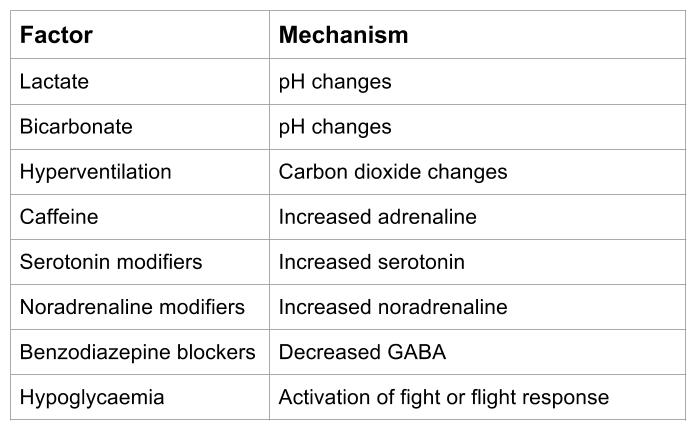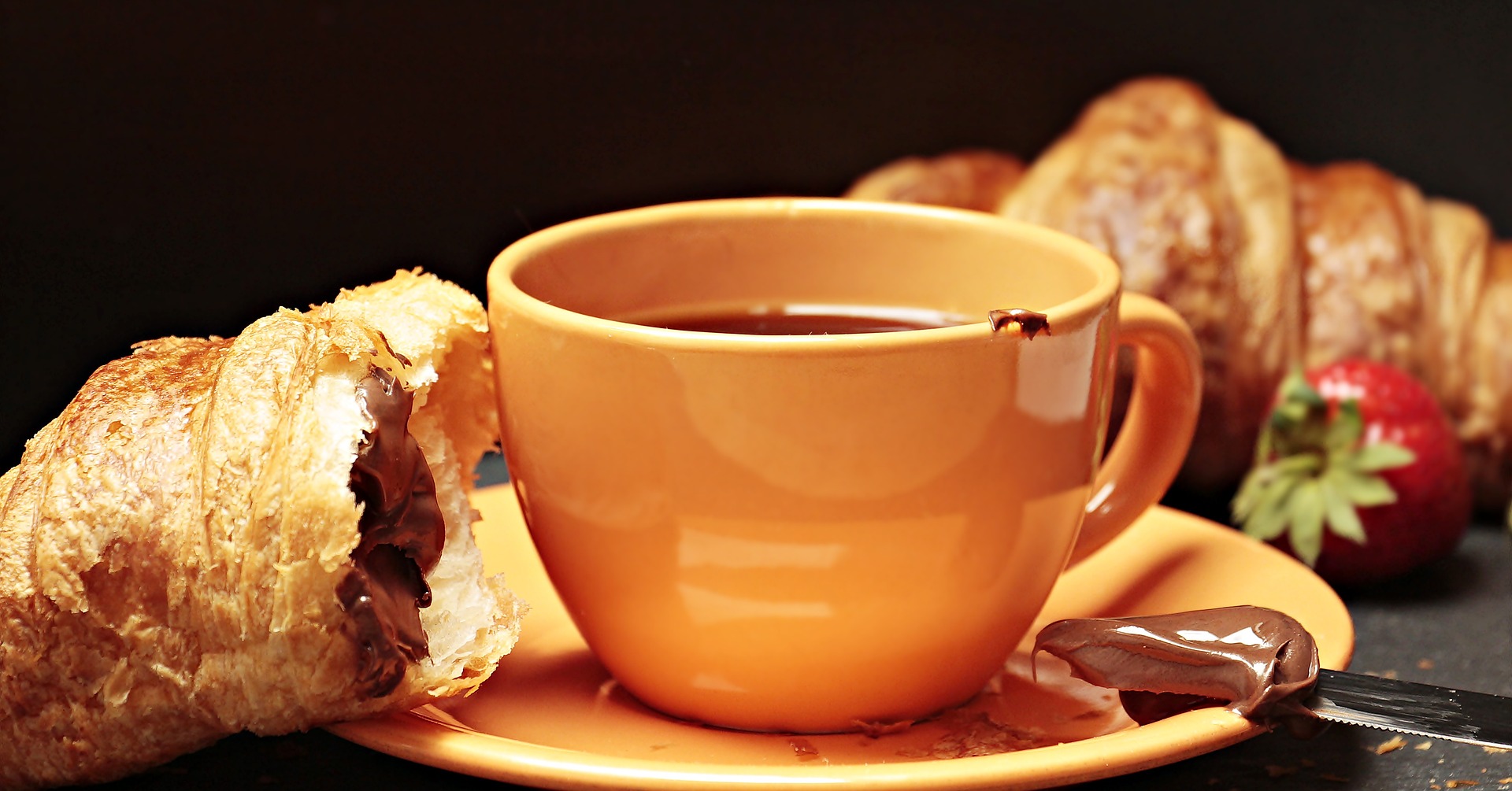 Anxiety is a common disorder in the modern Western World, with estimates indicating that 7.3 % of people in the United States may be sufferers. A sudden and extreme (paroxysmal) form of anxiety is a panic attack. It has been estimated that between 1 and 2 % of the population of the United States may suffer regularly from panic attacks with 35 % of the population having had at least one panic attack. Panic attacks can be hugely debilitating for the individual, and sufferers have an increased risk of mortality, particularly from cardiovascular disease and suicide. Panic attacks can be provoked under experimental conditions and a number of triggers for panic attacks are known (see figure). However, despite this understanding about how they can be triggered, it is still not fully understood what the possible mechanisms might be. Also, there is some debate as to whether the pharmacologically stimulated panic attack is actually the same as one that might be experienced naturally during the course of daily living.
Anxiety is a common disorder in the modern Western World, with estimates indicating that 7.3 % of people in the United States may be sufferers. A sudden and extreme (paroxysmal) form of anxiety is a panic attack. It has been estimated that between 1 and 2 % of the population of the United States may suffer regularly from panic attacks with 35 % of the population having had at least one panic attack. Panic attacks can be hugely debilitating for the individual, and sufferers have an increased risk of mortality, particularly from cardiovascular disease and suicide. Panic attacks can be provoked under experimental conditions and a number of triggers for panic attacks are known (see figure). However, despite this understanding about how they can be triggered, it is still not fully understood what the possible mechanisms might be. Also, there is some debate as to whether the pharmacologically stimulated panic attack is actually the same as one that might be experienced naturally during the course of daily living.

Panic attacks can be induced experimentally in a number of ways. Of these, perhaps infusion of sodium lactate is perhaps the most well studied and consistent. There may be multiple triggers for panic attacks, and for each individual, the trigger might be different.
A number of theories have been suggested to explain the development of panic attacks experimentally. One of these theories suggests that low blood glucose levels are able to provoke the development of panic attacks. Low blood glucose levels are known to induce many symptoms in common with panic attacks including sweating, anxiety, increased heart rate and elevations in blood pressure. However, experiments have shown that low blood glucose alone is not enough to trigger panic attacks in certain individuals. Further, panic attacks can occur under circumstances when blood glucose levels are normal. Therefore peripheral falls in blood glucose may not be reflected by a concomitant fall in neuronal glucose levels. This suggests that the panic attacks that occur as a result of low blood glucose may induce other biochemical changes that then provoke the panic attack. This suggests that it is these biochemical changes per se and not the low blood sugar that may be the cause of the panic attacks.

Consumption of sugar, high glycaemic index carbohydrates and poor glycaemic control may all be triggers for panic attacks. Avoiding alcohol and caffeine and maintaining adequate intakes of B vitamin, calcium and magnesium are also important.
Another promising theory of panic attacks is the lactate theory of panic attacks. This theory suggests that a raised level of lactate in the blood may trigger panic attacks. When glucose is metabolised, pyruvate can be formed. Under conditions of low oxygen in the cells, some of this pyruvate is converted to lactate. Alcohol, sugar, deficiencies of B vitamin, calcium and magnesium, caffeine and food allergies can all increase the production of lactate from pyruvate and this may provoke panic attacks. This theory is supported by experimental evidence that infusions of sodium lactate can induce panic attacks. The lactate theory of panic attacks suggests that changes to the lactate to pyruvate ratio causes pH changes in the brain which provokes anxiety. High glycaemic index carbohydrates are able to increase levels of blood lactate to a greater degree that low glycaemic index carbohydrates during exercise. In sensitive individuals this may be a contributory factor in the provocation of panic attacks.
Eat Well, Stay Healthy, protect Yourself
RdB
